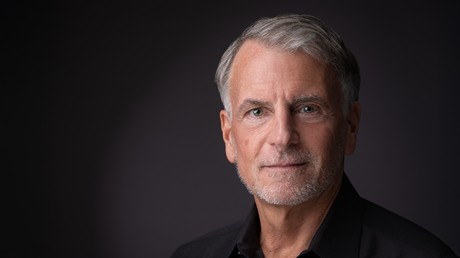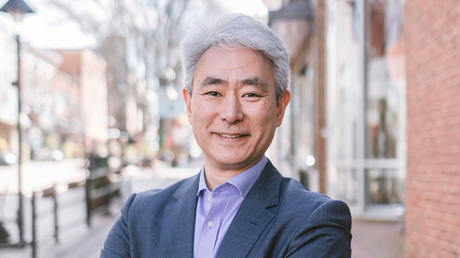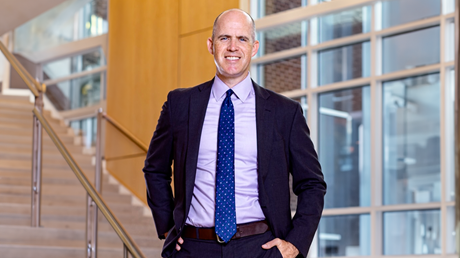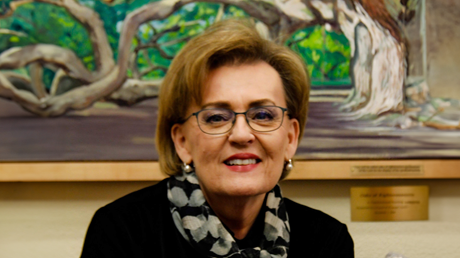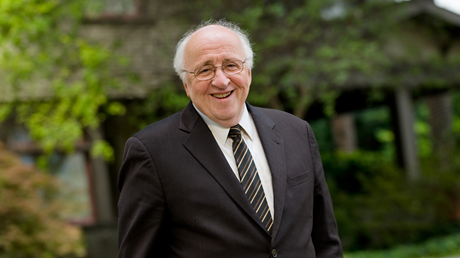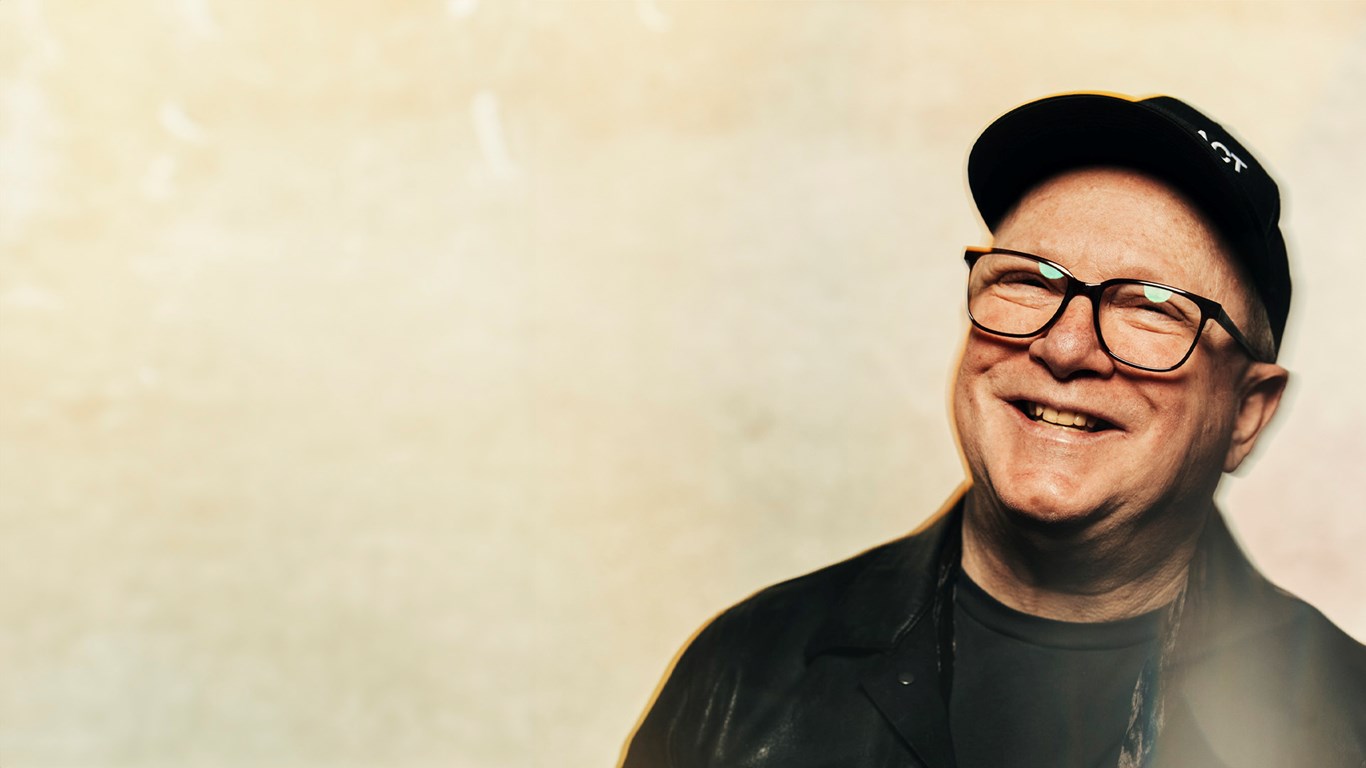
Will you help encourage and connect the church?
Give NowWill you help encourage and connect the church?
Give NowIn an interview with CT, Peacock reflected on his career in music and gave some behind-the-scenes information about his new podcast with CT, Music & Meaning.
When did you become a Christian?
I’ve lived a God-haunted life since I was a child and held a biblical belief in Jesus early on. But I had a ten-year period of living as if I wasn’t following Christ—call it “the decade I learned what sin is.” After that, I like to think God sent me a saxophonist/gospel messenger to strip away my immature ideas about Christianity and replace them with one basic fact—I was a broken man in need of a savior. Because of this, I mark that moment of saying yes to this truth, believing Jesus was and is that savior, as when I “became a Christian.”
How did you decide to go into music?
I never decided to go into music; it’s more like music decided to get into me. I see this as divine appropriation for all that was to come. I could’ve been a poet or a writer, and in many ways I am, but music was always in me. I can’t remember a time when I wasn’t humming, singing, or whistling a song or beat. Other people noticed this, and I was invited into a community of musicians.
How has your faith shaped your work over the years?
Succinctly, there is no work for me without faith in Jesus as teacher, redeemer, and overall provider of direction and resourcing. I had the same talent before and after my conversion experience, but stepping into the Jesus story as a participant? Oh man, that changed everything.
I saw a new way to be human, an artist, father, husband, citizen, you name it. The last four decades plus have been about discovering this incrementally—in the measure that I could process and implement, given my brokenness. Everything I try to do is about loving God and neighbor through creative works. That’s directly from Jesus and his summary of the law.
Can you tell me how you came up with the title Music & Meaning and what it means to you?
My producer and the head of CT Media, Mike Cosper, and I came up with the title as a succinct description of both my calling as a musician and what we hoped the podcast would be. He likens the podcast to being with me inside my creative space—in the room, if you will—as I interact with music, people, places, and the tools I’ve used to make music.
I’ve never been the kind of musician who just does a gig. I’ve always needed to know why I’m doing the gig—what is the meaning behind it. Now, later in life, I’ve practiced this way of being for so long that it’s second nature to see into the multiplicity of relationships between music and its use and enjoyment in the world.
Plus, I’m enough of a pop music historian (at least for my era) and have had just enough seminary education in cultural apologetics to ferret out the effect of Jesus on unlikely people and circumstances.
In episode 1 of Music & Meaning, you mention “the role of risk in cooperating with redemption.” What are the biggest risks you’ve taken?
Sadly, or maybe predictably, most of the big risks I’ve taken have been in going against the status quo of parts of the American evangelical church. In cooperating with redemption, there is only one authority—Jesus. If you’re doing a particular work that you think represents Jesus faithfully and other followers disagree, it’s wise and respectful to hear their argument. If you’re not persuaded after consulting the Authority via prayer, reflection, and wise voices and your conscience is clear, you carry on. And you take the hit if it comes to that.
In my line of work, music, most of my risks have been related to the issue of freedom, integrity, and mission. For example, I don’t call myself a Christian musician. I don’t have any issue with identifying with Christ or his church. I just don’t want to be solely identified with Christian music as a genre. To do so is to limit my freedom and mission. The risk of being misunderstood or angering people is one I’m willing to take for the sake of the redemptive, musical work I’m involved in—that is, music that doesn’t fit neatly under the Christian genre category, such as my improvisational music.
Describe a few recent episodes of Music & Meaning for us.
We began in episode 1 by telling the story of me signing the rock band Switchfoot and bringing them into the twin challenges of pop music and Christian music.
Since then, we’ve begun a conversation on AI and music and had Augustine as an imaginary guest, where he and I listened in to today’s Top 40 songs, analyzed the lyrics, and wondered if artistic confessions had changed much at all since his time, 1,600 years ago.
We also took a deep dive into the use of Jesus’ name in popular music over the last 70 years or so. And most recently we celebrated history-maker Sister Rosetta Tharpe as the inventor of gospel rock.
Coming up next is “God Gave Rock and Roll To You,” my interview with author Leah Payne on the history of contemporary Christian music.
What has CT recently done that moved you?
Many things, but most importantly, it reinvented itself—which is incredibly difficult for an institution to do. For me, it began with The Rise and Fall of Mars Hill podcast, then new leadership, Tim Dalrymple, and CT’s willingness to level intellectually serious criticisms against Trumpism and Christian nationalism. CT has done this without making sweeping and unfounded claims about all evangelicals, which is key. Then, more recently, with Russell Moore coming to CT as editor in chief and having gone through his own “risk for the sake of redemption” story, I was moved and intrigued.
Additionally, there was a conscious effort, one of design, to bring more and more diverse voices into the mix—especially women in leadership. All in all, CT has become a bigger tent, one that listens better. I especially like hearing the substantive reporting on the global church. And though of course I’m involved in it, but I have to say, CT’s podcast game is clutch and getting stronger all the time.
How do you see CT making an impact today?
I see Christianity Today making an impact through three channels: CT Magazine, ChristianityToday.com, and all their forms of media (especially podcasts). There are many initiatives underway from listening to and understanding a younger audience to larger film projects. This is a very imaginative and hopeful time for all things Christianity Today.
For me, I still get the magazine and just like I used to read the books of Carl F. H. Henry, CT’s first editor in chief, I’m reading the thoughts of its current editor in chief. Recently, I was very grateful for the article, "The Ideology That Drives Hamas", excellent reporting and writing from Mike Cosper. I also loved the Randy Loubier contribution, “Christians Made Me Rethink My Hatred of Christians,” a role we can all hope to play in someone’s life. And, as a big reader, the book reviews that CT provides are essential.
In addition to your work as senior music editor at CT and creator of the podcast, what else are you up to?
Mostly I try to be the best husband, father, and grandfather I can be. That’s my main vocational concentration, and I mean that seriously. I’m also fortunate to have a new book coming out soon, coauthored with my wife, Andi Ashworth, titled Why Everything That Doesn’t Matter, Matters So Much: The Way of Love in a World of Hurt. The book drops March 12, 2024.
I’m also working on a film titled Stage Left, about the importance of small venues to the American music canon, featuring a large cast of musicians, including Vince Gill, Molly Tuttle, Jason Isbell, Peter Frampton, my son Sam Ashworth, and daughter-in-law Ruby Amanfu. And there’s always new music to be made.
Any other last thoughts?
Ah, my favorite question. Yes, a word about hope. I am hopeful for myself and my family, for my neighbors, for CT, for the marginalized, the hungry, the unhoused, and the victims of war—and so much more. I have what I believe is a well-placed hope in the personification of the Hopeful One, Jesus himself.
I’ve lived too long following this teacher to not bear this witness. In short, I’ve seen too much not to believe there is good which replicates again and again. So much so, that love is actually seen, heard, and felt—even when things go terribly wrong and even when our best efforts are proximate in effect.


